The secret cinema hidden in an Edinburgh basement flat
- Published
Take a look inside the secret cinema club that has been documenting Edinburgh life since the 1930s
A basement flat on a residential street in Edinburgh's New Town has a secret which dates back almost 90 years - it is home to a hidden cinema.
For decades, people have been walking past the Georgian townhouse at 23 Fettes Row unaware of what was inside.
It has been home to a cinema since a group of amateur film enthusiasts founded the Waverley Cine Society in 1936.
In its heyday there was a waiting list to join the club - and after a major renovation in the 1970s, the Queen Mother was among its visitors.
But changes in technology have seen numbers dwindle since the 1980s and now the club is to open its doors to the public on Thursday in an attempt to attract new members.
Now called the Edinburgh Cine and Video Society, its secretary, Stewart Emm, gave BBC Scotland a tour behind the scenes.
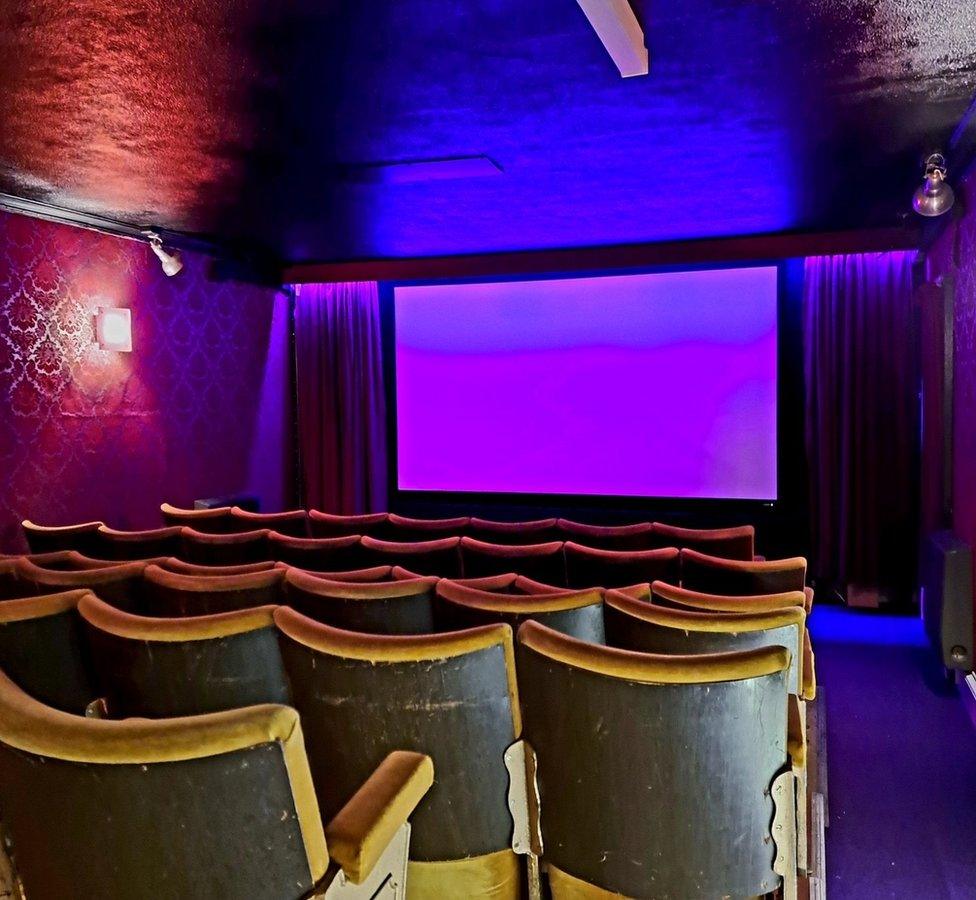
How the cinema looks today
Entering the basement flat, we travel down a corridor past several dark rooms and old studio spaces before turning left past a kitchen.
On the right are old wooden doors that open into the 52-seat cinema, which is clad in embossed wallpaper from the 1930s.
On the left is a large room with film awards on the wall and through a tiny door on the far side is the projector room, up some narrow steps.
"Nobody knows we are here, so we are quite a secret cinema," says 76-year-old Mr Emm.
The New Town building was first converted to a cinema shortly after the society was founded in the 1930s.
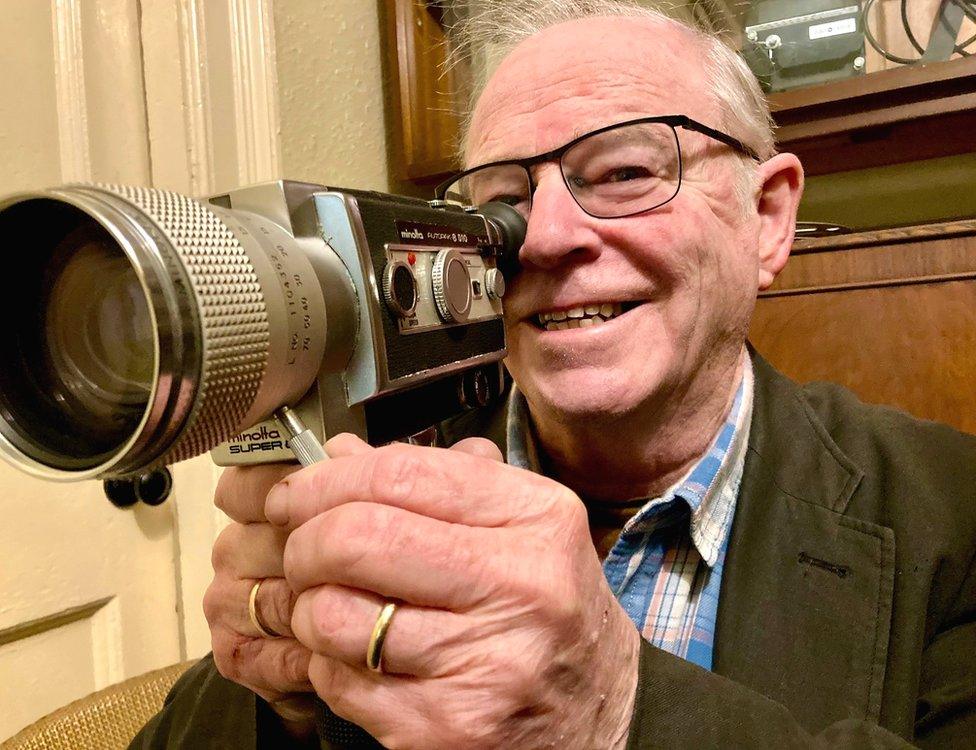
Mr Emm says hardly anyone knows what goes on behind the ordinary looking front door in the residential Fettes Row
The idea was to show the amateur cine films made by club members at their regular meetings or at various summer outings.
Over the years it built up a library of film footage that has formed a valuable archive of social history in the life of Edinburgh.
"Sometimes we would all get together to make a club comedy, fiction or travel documentary," Mr Emm says.
The club allowed members to learn film-making skills, including editing and show their finished films.
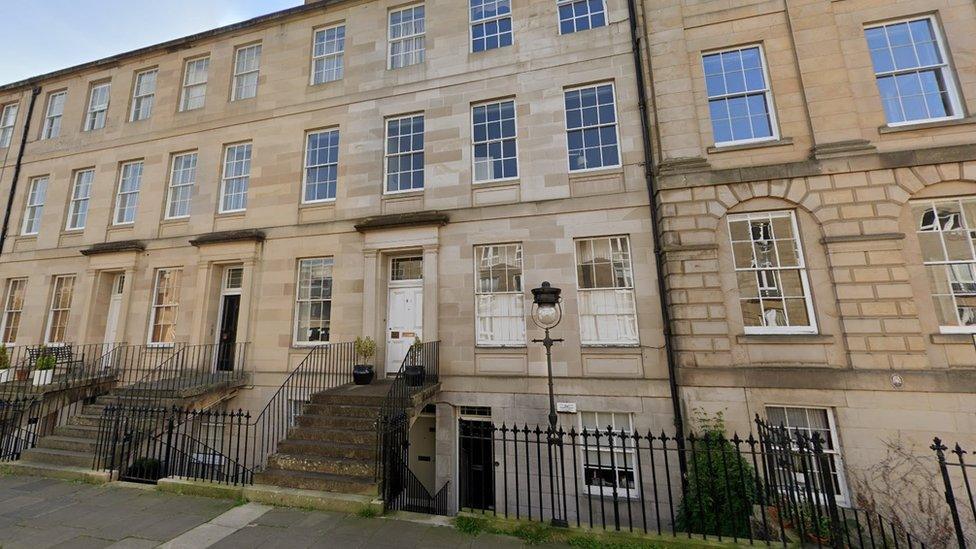
The ground floor of 23 Fettes Row, which was entered through the white door, was sold along with a sub-basement below
When the society was first formed the club's premises spanned three floors, with a sub-basement being let out to pay for the mortgage.
The outbreak of World War Two inhibited the club's film-making activities but female members kept the society going, organising fundraising events to help with the mortgage payments.
It had a resurgence after the war. The club rooms were refurbished and regular meetings were held on Friday nights, with film-making groups at weekends.
In the 1950s, the old bus seats which were originally used in the cinema were replaced with stock from a local cinema that was closing.
This created a 78-seat auditorium with a separate projection box.
Mr Emm says the club "flourished" in the 20 years after the war, reaching its maximum permitted membership of 150 - and there was also a waiting list.
The mortgage was finally paid off in 1959. Three of the five original investors were found but they declined repayment.
Major renovation works were carried out on the then 150-year-old building when it was designated a listed building in the early 1970s.
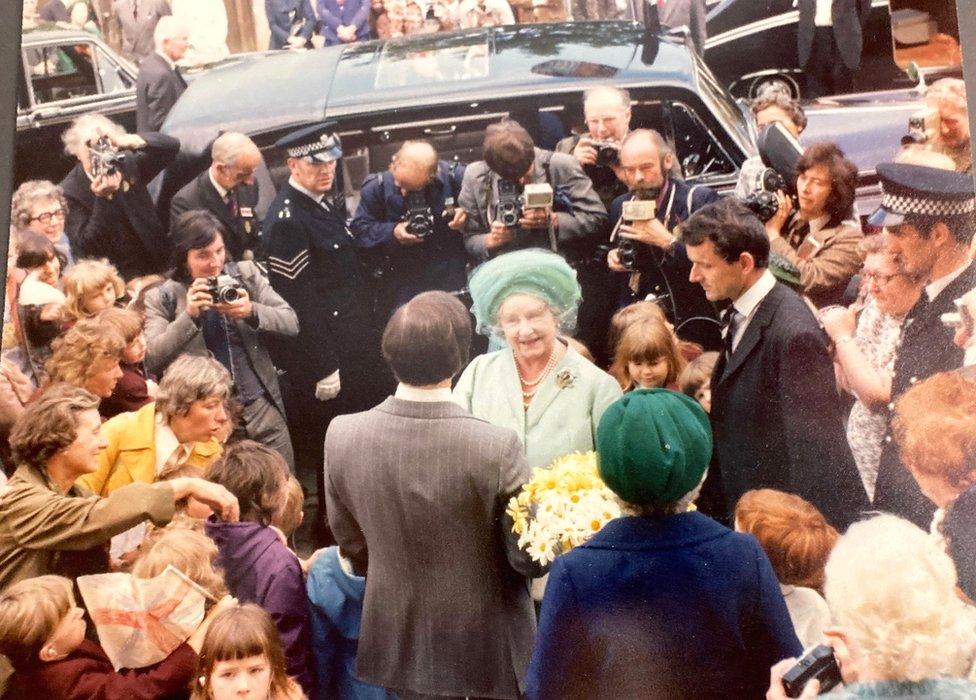
The late Queen Mother unveiling a plaque at the society in the 1970s
Following those works, the Queen Mother - who was patron of the conservation committee - unveiled a plaque on the members-only cinema and had a tour of the club rooms.
"Like many earlier episodes in the society's history this was recorded on film," Mr Emm says.
With a reduced membership, and a need to fund the share of the building works, the ground floor and the sub-basement was sold off, with the club just keeping the basement in-between the two floors - where it created a smaller 52-seat cinema.
The members did all the work to move the cinema to the basement including joinery and painting work.
The floors were sold off to pay for roof repairs, leaving the society with just the basement. The cinema had previously been in a room above the basement.
Then in the 1980s came videotape - which proved a threat to cine film.
Many of the members resented and rejected this new format and expressed their feelings strongly.
They split into two groups with Thursday nights becoming video nights while Friday evenings were kept for the main club activities with cine film.
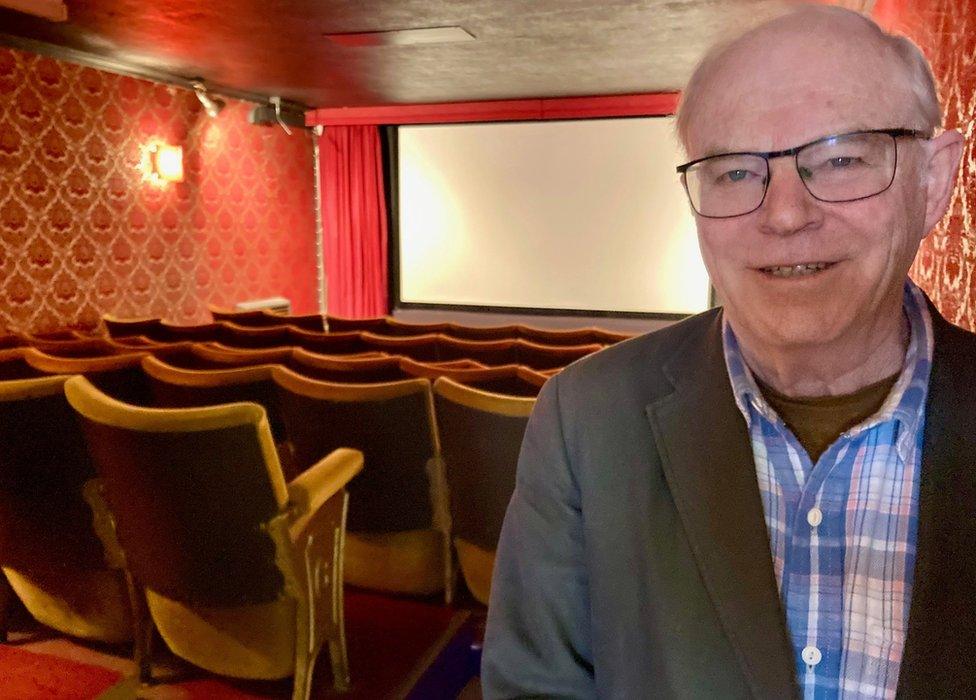
Mr Emm said they now needed new and younger members to join the society
Now with a dwindling membership of only 14 - two of whom are in their 90s - the society is to open its doors next week in a bid to recruit new members.
Mr Emm said: "The current members wouldn't like to be described as old, but they are too old now to keep it going.
"I think we need some younger members now.
"We have the knowledge and the technology but we are now lacking the creative element.
"We need a drama group that can make scripts and we need actors for our films."